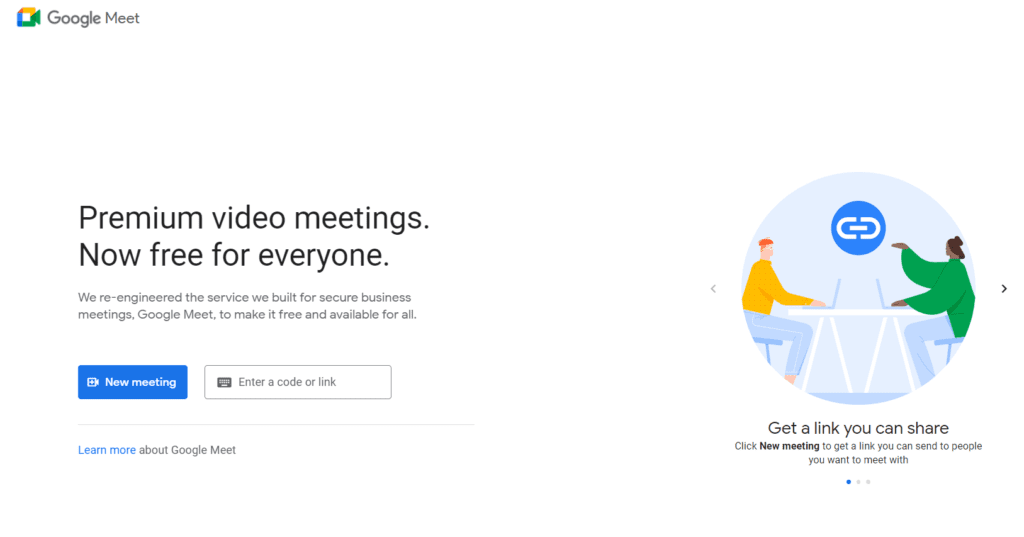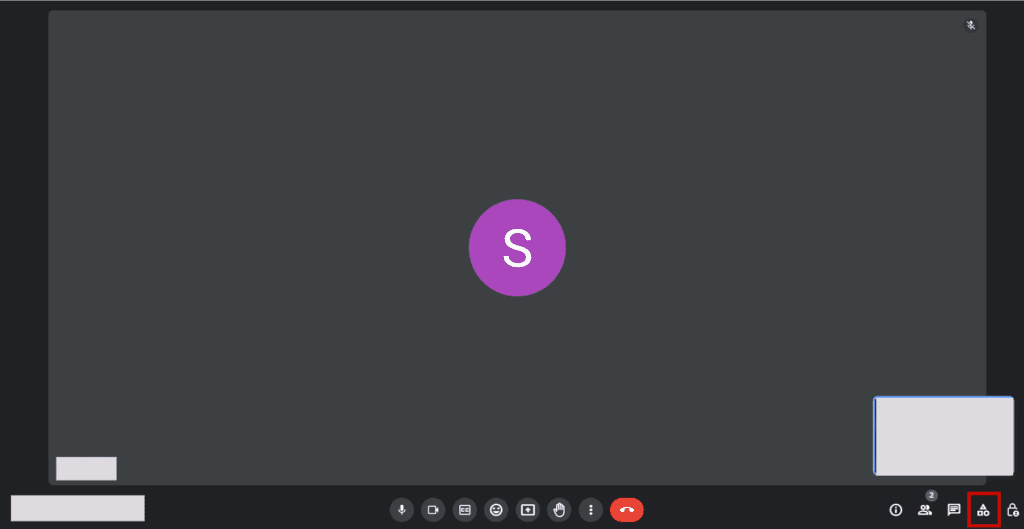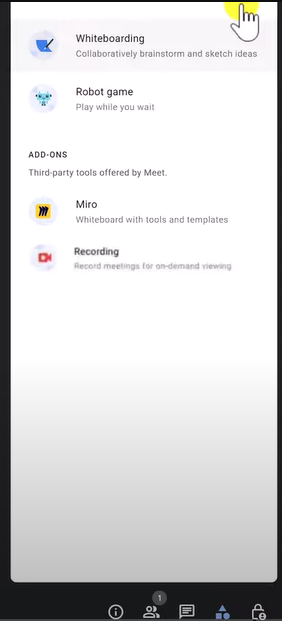Introduction
In today’s digital era, virtual meetings have become the norm, with Google Meet emerging as a popular platform for online collaboration. Recording Google Meet sessions can be immensely valuable for reference, archiving, and knowledge sharing. This in-depth guide will explore various methods and best practices to record Google Meet sessions effectively.in this article of howtowikiguide we will guide you to Record Google Meet.
Understanding the Importance of Recording Google Meet Sessions
Recording Google Meet sessions offers numerous benefits, such as ensuring no crucial information is missed, enabling participants to review discussions, and facilitating effective team communication.
Benefits of Recording Google Meet Sessions
Recording allows participants to:
- Documentation and Review: Recording sessions allows you to create a comprehensive record of the meeting’s content, discussions, and decisions. This documentation can be useful for reviewing important points, clarifying information, or referencing details at a later time.
- Attendance and Engagement: Sometimes, participants may not be able to attend a live session due to scheduling conflicts or time zone differences. By recording the session, you ensure that everyone can access the content and remain engaged, even if they couldn’t be present during the live event.
- Learning and Training: In educational settings or corporate training sessions, recordings can serve as valuable resources for learners to revisit concepts, study materials, and reinforce their understanding. This flexibility aids in self-paced learning and accommodates different learning styles.
- Sharing with Absentees: If someone misses an important meeting or presentation due to unforeseen circumstances, you can easily share the recording with them. This keeps everyone on the same page and ensures that critical information is not lost.
- Legal and Compliance Purposes: In some cases, meetings may involve legal matters or compliance requirements. Recording the session can serve as evidence or verification of discussions and decisions made during the meeting.
- Data Archiving: Important discussions or announcements can be recorded and archived for future reference. This can be especially useful in long-term projects or ongoing collaborations.
- Performance Evaluation: In professional settings, recording training sessions or team meetings can help in evaluating performance, identifying areas for improvement, and enhancing team dynamics.
- Enhancing Remote Collaboration: In remote work settings, where team members may be spread across different locations, recording Google Meet sessions promotes effective collaboration and fosters a sense of inclusion for all participants.
Who can Record Google Meet
Google currently restricts the availability of the Google Meet recording feature to specific users. This means that if you have a free personal Google account, you won’t have access to the recording option. To be able to record a Google Meet, you must either be the meeting organizer or be part of the same company as the organizer.
Furthermore, the recording function is only accessible through a computer’s web browser. If you are the meeting organizer and you are using a mobile device, such as an Android or an iPhone with the Google Meet app, you will not be able to record the meeting.
Additionally, there is a limitation on the duration of the recordings. Meetings can only be recorded for a maximum of eight hours. If the meeting surpasses this time limit, the recording will automatically end after eight hours.
Preparing to Record Google Meet
Before initiating the recording process, ensure that your system and settings are optimized for a seamless experience. Verify that you have the necessary hardware, software, and internet connectivity to support recording. Ensure that your microphone and camera are functioning correctly to capture clear audio and video. Check that you have enough storage space on your device or cloud storage for recording Google Meet sessions.
Built-in Recording Feature in Google Meet
Google Meet offers a convenient built-in recording feature to capture your meetings.
Initiating Recording During a Google Meet
Access the Google Meet platform, initiate a new meeting, and invite others to join.

To start recording, click on the activity menu during a meeting .

Select Record meeting option.

To stop the recording, access the same menu and choose “Stop recording.” You can manage the recorded session in your Google Drive.
The recorded Google Meet session is automatically saved to the organizer’s Google Drive under “Meet Recordings.”
Third-Party Recording Solutions
While Google Meet’s built-in feature is useful, third-party recording apps offer additional functionalities. Several third-party apps are available for recording Google Meet sessions, each with unique features.
Choosing the Right App for Your Needs
Consider factors such as ease of use, recording quality, and compatibility with your device when selecting a third-party app. Install your chosen app and configure it according to your preferences and privacy settings.
Best Practices for Effective Recording
To make the most of your recorded Google Meet sessions, follow these best practices. Always seek consent from all participants before recording any meeting. Establish ground rules for recording, such as minimizing background noise and distractions. Label and categorize your recorded sessions to ensure easy retrieval and management.
Troubleshooting Recording Issues
Sometimes, technical issues may occur while recording. Here are common problems and their solutions. Check your microphone and camera settings and ensure they are functioning correctly. Restart the recording app or Google Meet to resolve crashes and glitches. Ensure a stable internet connection to avoid disruptions during recording.
Security and Privacy Considerations
Maintain the security and privacy of recorded sessions. Store recorded sessions in a secure location to prevent unauthorized access. Control who can access and view the recorded Google Meet sessions. Adhere to data protection laws and ensure participants are informed about the recording.
Editing and Enhancing Recorded Google Meet Sessions
After recording, you can improve the quality and content of the sessions. Edit out irrelevant portions to keep the recording concise and focused. Enhance accessibility by adding captions and annotations to the recording. Use editing software to enhance the audio and video quality of the recorded session.
Sharing and Distributing Recorded Sessions
Make the recorded sessions accessible to participants and others. Share the recorded session link with participants and those who couldn’t attend. Consider uploading recordings to video-sharing platforms or cloud storage for broader access. Integrate recorded sessions with other collaboration tools for seamless workflows.
Archiving and Long-term Storage Solutions
Manage storage space and create an organized archive for your recorded sessions. Regularly review and manage storage space to avoid reaching capacity limits. Ensure important recordings are backed up for long-term preservation. Organize your recorded sessions into categories and folders for easy retrieval.
Legal and Ethical Considerations
Understand the legal and ethical implications of recording Google Meet sessions. Ensure all participants are informed and give consent before recording. Familiarize yourself with recording laws and regulations in your region. Use recorded content responsibly and ethically, respecting participants’ privacy.
Advanced Features and Future Trends
Explore advanced features and future trends in Google Meet recording technology. Advancements in AI may soon enable real-time transcriptions and translations. Immersive virtual reality recordings could revolutionize online meetings. Integrate recorded sessions with meeting analytics for valuable insights.
Alternatives to Recording Google Meet Sessions
Recording may not always be the best solution. Consider alternatives. Taking detailed meeting notes can be an efficient alternative to recording. Use Google Meet’s transcript feature to revisit meeting discussions.
FAQs
- Can I record a Google Meet session without the organizer’s permission? It is essential to obtain the organizer’s consent and that of all participants before recording any Google Meet session. Respect for privacy and data protection is crucial.
- Are third-party recording apps safe to Record Google Meet? While many third-party recording apps are safe, it’s essential to research and choose reputable ones that prioritize user privacy and security.
- How can I ensure high-quality audio and video in my Google Meet recordings? Check your microphone and camera settings before the meeting, and use a stable internet connection to ensure optimal audio and video quality.
- Can I edit my recorded Google Meet sessions? Yes, you can edit your recorded sessions using various video editing software to trim, enhance, and customize the content.
- Are there any storage limitations for recorded Google Meet sessions? Google Drive provides ample storage space for recorded sessions, but if you encounter storage limitations, consider using external storage solutions.
Conclusion
Recording Google Meet sessions is a valuable practice that enhances collaboration and knowledge sharing. Whether using built-in features or third-party applications, following best practices and adhering to legal and ethical considerations ensure a seamless and productive recording experience.



